PNW Components' Range Composite pedal has a nylon composite construction and is a more affordable and lighter-weight version of its alloy Loam pedal, with a similar design and appearance.
Like the alloy version, the Range is offered with a lifetime warranty from PNW, and is available in seven eye-catching colours. The Range costs £39.51 / $49 / €46.49.
PNW Components Range Composite pedal details and specifications
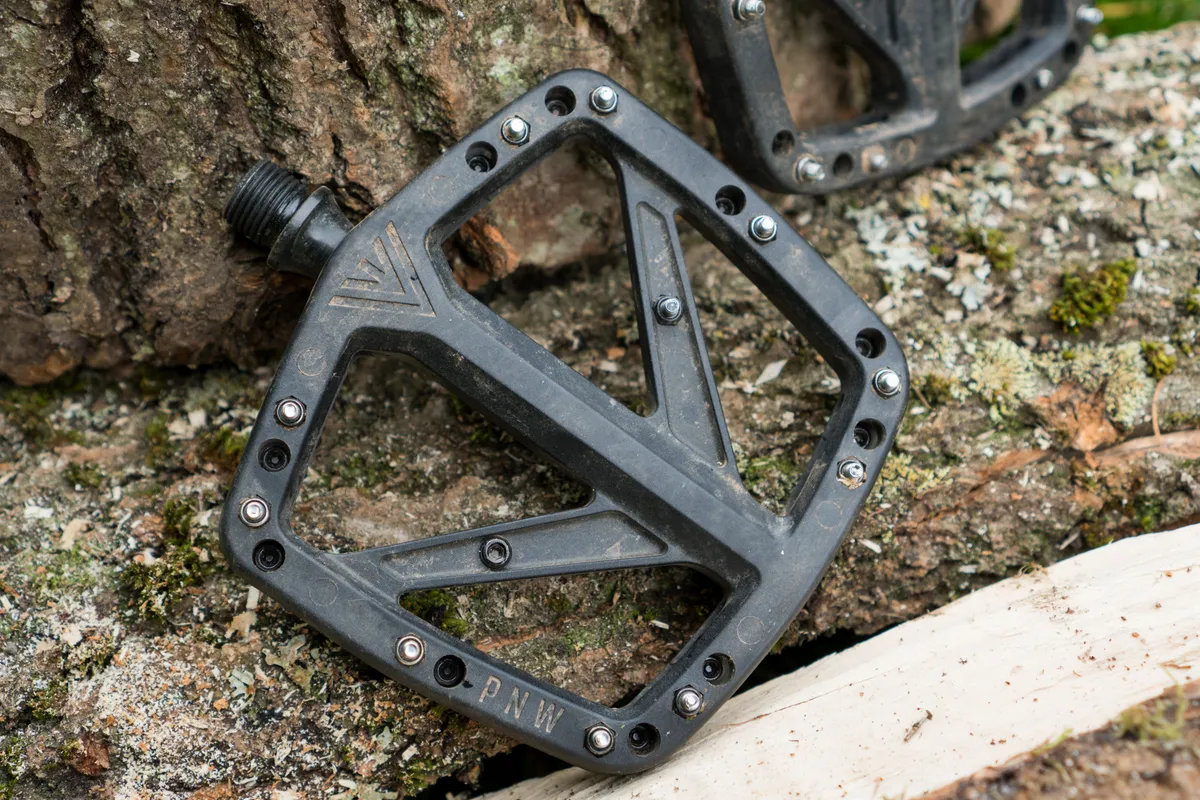
The nylon composite body measures 105(W)x113mm(L) at its longest and widest points, and 95mm and 100mm at its narrowest respectively.
Despite the trailing and leading edges having a flat face, the edges are curved around to the pedal’s platform, rather than being sharp.
Like the Loam pedal, the central axle housing is the pedal’s deepest section, measuring 17mm. This tapers down to 9mm at the leading and trailing edges, giving the platform a convex shape.
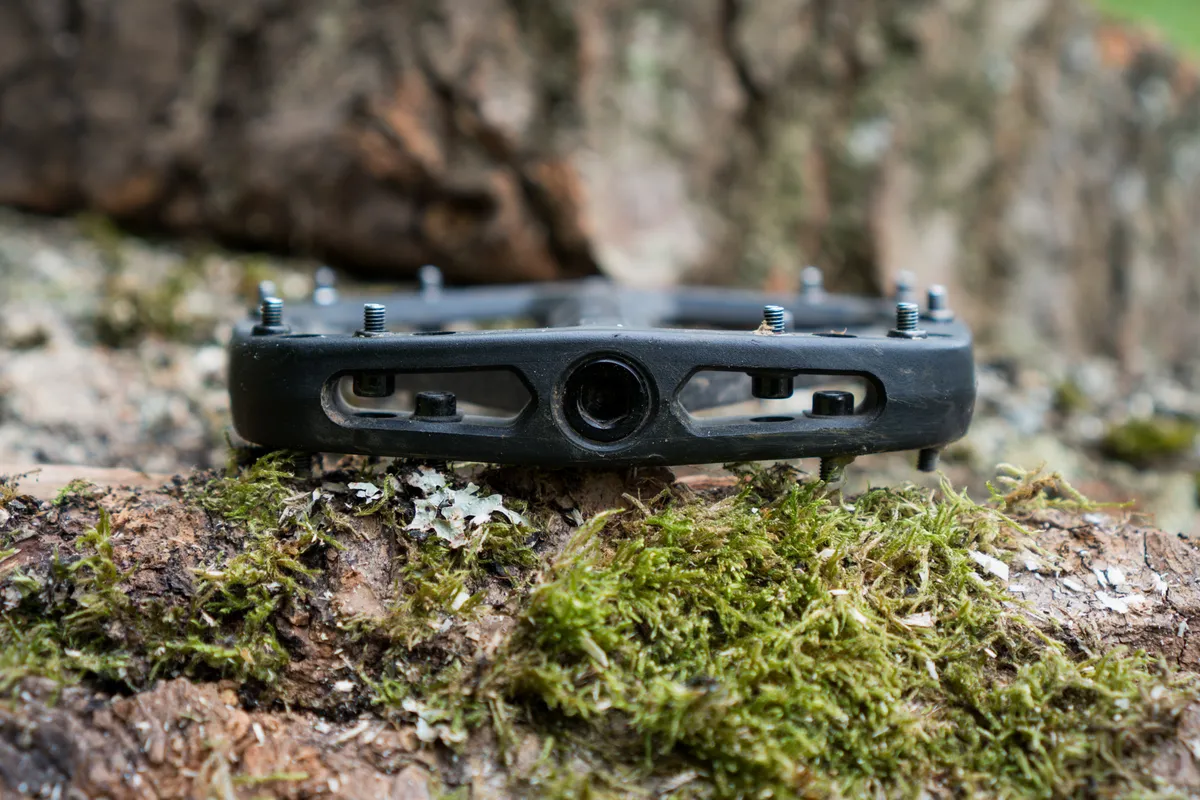
When placed on a flat surface, the 11 rear-loading pins flatten the pedal’s platform, standing proud of the axle housing. Unlike the Loam pedal, there is no inboard bearing bulge. My pair of test pedals weighed 398g.
PNW Components Range Composite pedal performance
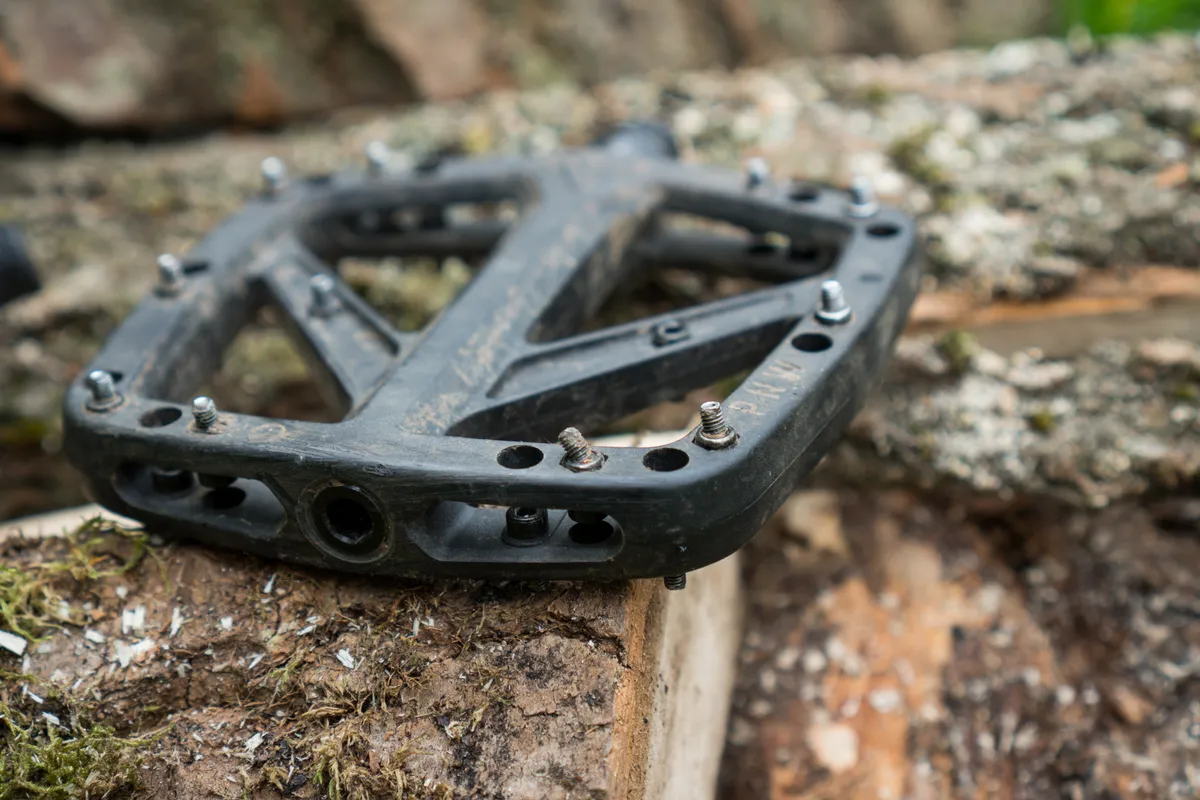
Thanks to a large platform, the Range Composite pedal provides plenty of foot support, which helps limit clawing, a problem usually found on smaller platforms.
The sharp pins proved to be grippy, and despite a few of them getting bent after aggressive rock strikes, the rear-facing Allen key head meant I could easily remove them from the pedal’s body.
However, thanks to the convex shape, I found grip was limited.
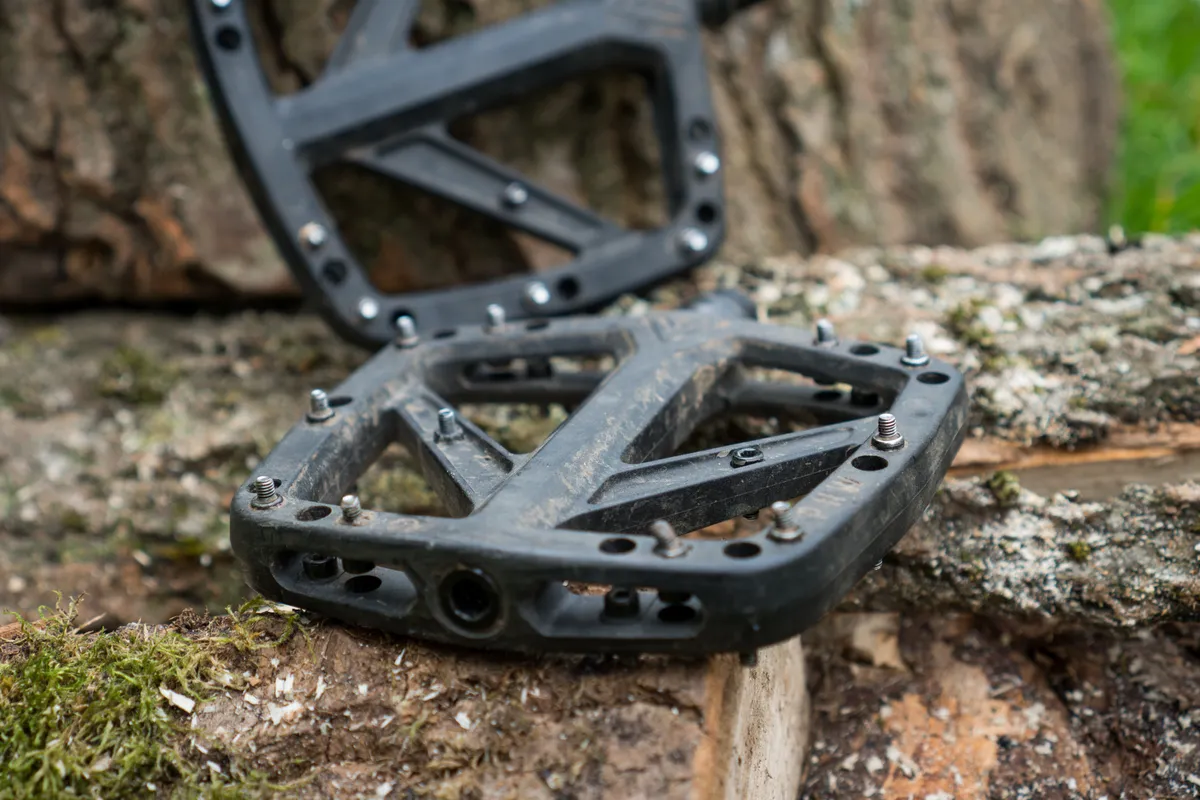
The axle housing could be felt through the sole of my shoe, directing pressure and grip away from the pins. This caused a cascading reduction in traction where my foot would slip forward or back on the pedals, concentrating even more pressure on the bulge’s single pin and flat surface, away from the grippy front and rear edges.
This was less of an issue with the grippy Five Ten Stealth rubber, where the soft, flexible sole remained stuck to the sharp pins. However, when using the pedals with harder or stiffer shoes, traction was limited, highlighting the downfalls of a convex, rather than concave, platform.
During the test period, the bearings remained smooth and play-free, and the bodies deflected ground strikes well.
PNW Components Range Composite pedal bottom line
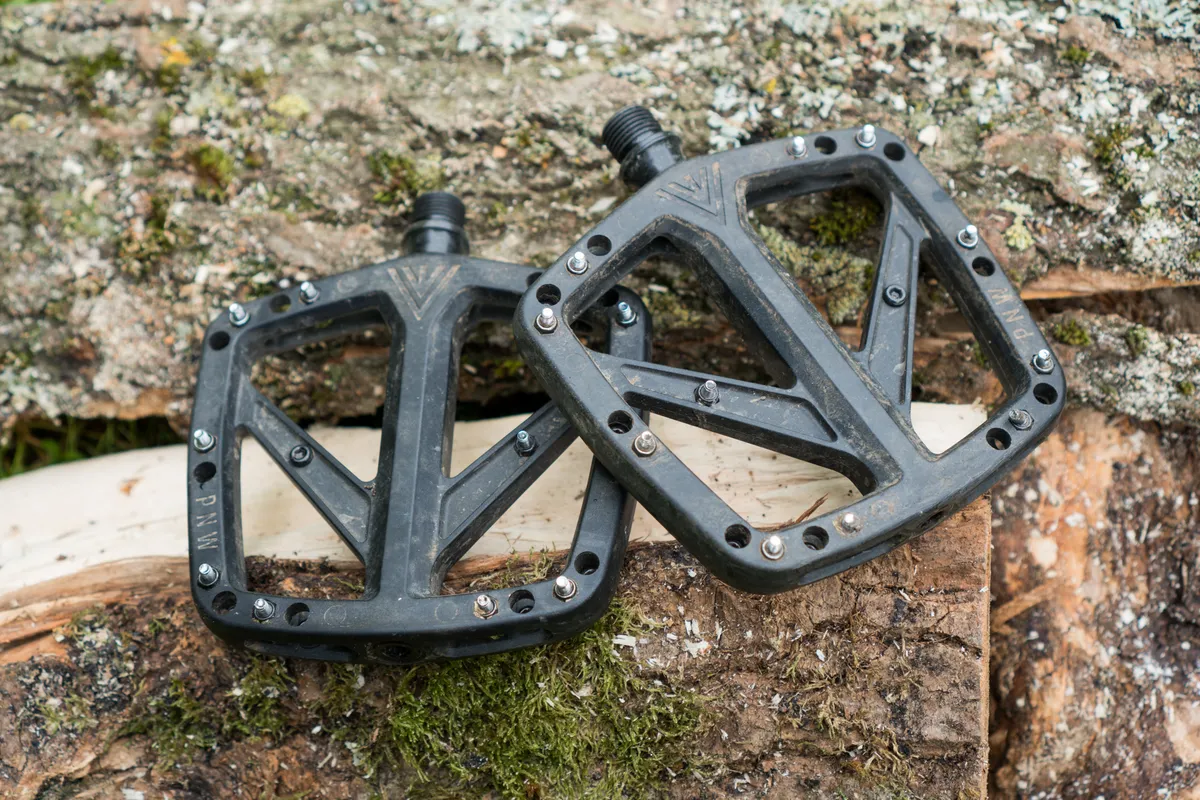
Despite the low cost and lifetime warranty, the convex platform profile limits the Range’s grip and performance out on the trails when it’s needed the most.
If you exclusively wear Five Ten shoes and are looking for a hard-wearing and affordable set of flat pedals, these are worth a look, but so are HT’s PA03A.
Product
| Brand | Pnwcomponent |
| Price | €47.41, £40.67, $49.00 |
| Weight | 398g |
Features
| Features | 105(W)x113(L)x17(D)mm |
